Share
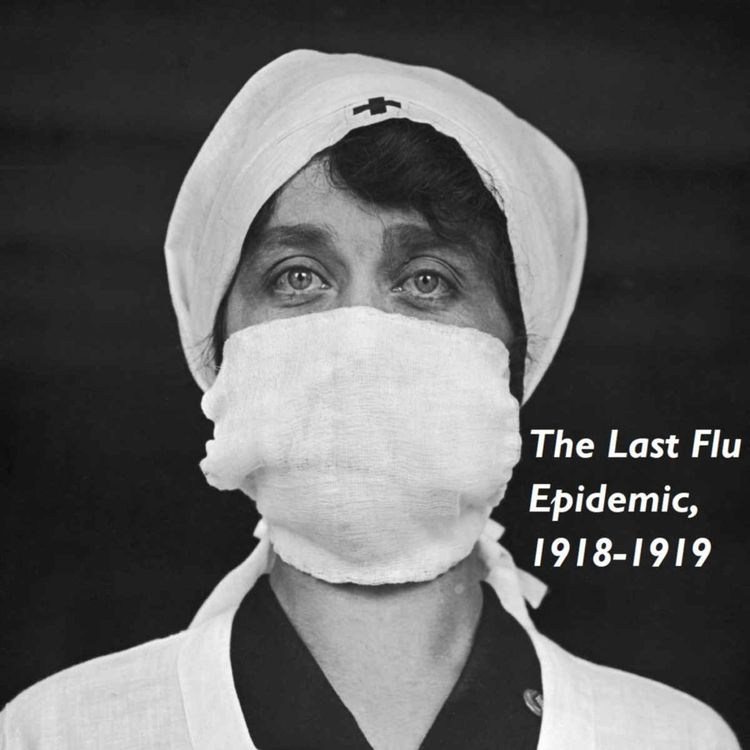
The Gilded Age and Progressive Era
The Last Flu Epidemic, 1918-1919
Ep. 1
•
Just over 100 years ago, the world faced a deadly pandemic not dissimilar to COVID-19. The "great flu" of 1918-1919 was largely forgotten until we needed to historic lessons on how to combat the waves of infection. With Christopher McKnight Nichols, this week's show investigates the pathogenic parallels.
Essential Reading:
- Christopher McKnight Nichols and Brandon Jett, “Americans used to sacrifice for the public good. What happened?” Washington Post, December 7, 2020
- Nancy Bristow, American Pandemic: The Lost Worlds of the 1918 Influenza Epidemic (2017).
Recommended Reading:
More episodes
View all episodes
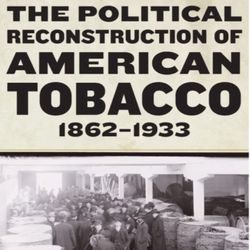
114. 114: The Political Reconstruction of American Tobacco
52:30||Ep. 114In this episode of the Gilded Age and Progressive Era Podcast, Boyd Cothran talks with historian Patrick O’Connor about his new book, The Political Reconstruction of American Tobacco, 1862–1933.Rather than treating tobacco primarily as a moral problem or a corporate success story, O’Connor approaches it as a window onto the making of the modern American state. Beginning with Civil War–era taxation and moving through the Gilded Age and Progressive Era, the conversation traces how tobacco became deeply embedded in federal governance—through revenue collection, market regulation, inspection and classification regimes, agricultural science, and expert bureaucracy.Along the way, we discuss how taxation helped create national markets, how “quality” and knowledge functioned as forms of power, how growers were disciplined through debt and market institutions, and how Progressive Era expertise reshaped both agriculture and state capacity. The episode also reflects on why tobacco proved so difficult to regulate or dismantle in the early twentieth century—and what this history can tell us about the long-standing challenges of governing harmful but profitable commodities.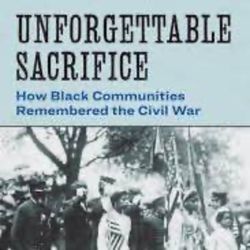
113. 113 Unforgettable Sacrifice
01:19:40||Ep. 113Cathleen talks with Dr. Hilary N. Green, whose most recent book, Unforgettable Sacrifice: How Black Communities Remembered the Civil War, was published by Fordham University Press in 2025. https://fordhampress.com/unforgettable-sacrifice-hb-9781531508531.htmlAn exciting addition to scholarship on Civil War memory with its focus on African American traditions of memorialization, the book also offers historians important methodological tools.For Dr. Green's public history projects, seeWith Their Hands: https://www.davidson.edu/news/2025/10/21/memorial-brings-unacknowledged-into-storyHallowed Grounds https://www.hngreenphd.com/the-hallowed-grounds-project.htmlWe also mentioned Dr. Martha Jones' Hard History project at Johns Hopkins University:https://hardhistory.jhu.edu/We mentioned a number of books in our conversation including:David Blight, Race and Reunion: The Civil War in American Memory (Harvard UP 2001)Barbara A. Gannon, The Won Cause: Black and White Comradeship in the Grand Army of the Republic (The University of North Carolina Press, 2011)Caroline Janney, Remembering the Civil War: Reunion and the Limits of Reconciliation (University of North Carolina Press, 2013)David Silkenat, Raising the White Flag: How Surrender Defined the American Civil War (University of North Carolina Press, 2019)Contact the host: Cathleen Cahillcdcahill@psu.edu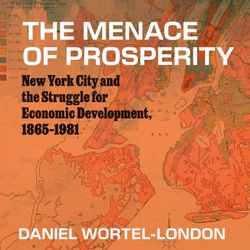
112. 112: The Menance of Prosperity
01:00:00||Ep. 112In this episode of The Gilded Age and Progressive Era Podcast, Boyd Cothran speaks with historian Daniel Wortel-London about his new book, The Menace of Prosperity, a sweeping history of New York City and the political economy of urban growth from the aftermath of the Civil War through the late twentieth century.The conversation centres on the Gilded Age and Progressive Era, when New York’s leaders increasingly tied the city’s finances to real estate development, municipal debt, and rising property values. Wortel-London introduces two key concepts—social costs and fiscal imaginaries—to explain how elite-driven prosperity repeatedly generated fiscal crises, inequality, and instability, even as critics advanced alternative visions rooted in cooperation, public ownership, and democratic control of urban resources.Along the way, Boyd and Daniel discuss the 1870s fiscal crisis and fears of “monstrous growth,” Gilded Age fiscal radicals and the cooperative commonwealth, Henry George and the single tax, Progressive Era debates over municipal ownership and planning, and interwar struggles over housing and economic stabilization. The episode concludes by tracing how these late nineteenth- and early twentieth-century choices shaped the New Deal, the 1970s fiscal crisis, and contemporary debates over housing, development, and inequality in New York.The Menace of Prosperity is available from the University of Chicago PressContact the host:Boyd Cothran can be reached at cothran@yorku.ca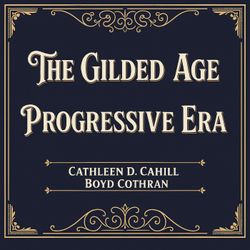
111: The Best of: Chasing Beauty: The Life of Isabella Stewart Gardner
51:16|There are a few people that embody a period. Isabella Stewart Gardner knew many of the the movers and shakers of the Gilded Age and lived from 1840-1924. Her story, and her compulsion to buy the art of the age, makes her a great lens through which to understand the Gilded Age. Dr. Natalie Dykstra joins the show to discuss her latest biography of Bella.Natalie Dykstra, Chasing Beauty: The Life of Isabella Stewart Gardner (2024).The webpage for Clara Endicott Sear's Fruitland Museum can be found at https://thetrustees.org/place/fruitlands-museum/
110. 110: The Gilded Age Christmas Cookbook
42:19||Ep. 110In this festive episode of the Gilded Age & Progressive Era podcast, we welcome back food historian Becky L. Diamond to discuss her latest book, The Gilded Age Christmas Cookbook. Using recipes as historical evidence, Becky takes us into nineteenth-century kitchens to explore how Christmas took shape during the Gilded Age—an era defined by inequality, immigration, and the rise of modern consumer culture.We talk about forgotten holiday treats like sugar plums, German and Central European influences on the American Christmas table, the labor behind seasonal abundance, and the challenges of translating nineteenth-century recipes for modern kitchens. Along the way, Becky shows how food opens a powerful window onto aspiration, memory, and domestic life in the Gilded Age.This episode builds on Becky’s earlier appearance on the podcast for The Gilded Age Cookbook and reminds us why food history belongs at the centre of Gilded Age and Progressive Era scholarship.----Becky L. Diamond, The Gilded Age Christmas Cookbook (Lyons Press)Becky L. Diamond, The Gilded Age Cookbook
109. 109: Best of: The Allure of Empire
01:09:47||Ep. 109While Cathleen and I are working on new content for the podcast—lots of great episodes are on the way—we’re also taking time to revisit some of Michael’s excellent past interviews.For my second “best of” pick, I chose Episode 54, The Allure of Empire, which first aired on July 4, 2023. In this episode, Michael talks with historian Chris Suh about his award-winning book The Allure of Empire: American Encounters with Asians in the Age of Transpacific Expansion and Exclusion. Suh’s work invites us to rethink the Gilded Age and Progressive Era through the lens of empire—tracing how U.S. expansion in the Pacific intertwined with racial exclusion and the politics of belonging at home.It’s a rich, thought-provoking conversation that shows how the legacies of the Gilded Age still shape America’s place in the world today.We hope you’ll enjoy (re)listening as much as we did—and, as always, we’d love to hear which past episodes have been your favourites!Essential Reading:Chris Suh, The Allure of Empire: American Encounters with Asians in the Age of Transpacific Expansion and Exclusion (2023).Recommended Reading:David C. Atkinson, The Burden of White Supremacy: Containing Asian Migration in the British Empire and the United States (2016).Eiichiro Azuma, Between Two Empires: Race, History, and Transnationalism in Japanese America (2005).Thomas Bender, A Nation among Nations: America’s Place in World History (2006).Akira Iriye, Pacific Estrangement: Japanese and American Expansion, 1897– 1911 (1972).Richard S. Kim, The Quest for Sovereignty: Korean Immigration Nationalism and U.S. Sovereignty, 1905– 1945 (2011).
108. 108: Best of: Oceans of Grain: Wheat, Russia, Ukraine, and the U.S.
55:21||Ep. 108While Cathleen and I are working on new content for the podcast—stay tuned, there’s lots of exciting stuff coming—we wanted to take a moment to revisit some of Michael’s excellent past episodes.For my first “best of” pick, I chose Episode 17, Oceans of Grain, which originally aired on March 2, 2022. In this episode, Michael talks with historian Scott Reynolds Nelson about how the global trade in wheat reshaped the modern world. It’s a fascinating look at how the Gilded Age and Progressive Era fit into a much larger story of empire, capitalism, and global connection.When the episode first aired, Russia had just invaded Ukraine, and Nelson’s discussion of the Black Sea grain routes suddenly felt eerily relevant. Listening again now, it’s striking how powerfully this conversation links nineteenth-century global trade to the world we live in today.We hope you’ll enjoy (re)listening as much as we did—and we’d love to know which episodes stand out as your favourites!Essential Reading:Scott Reynolds Nelson, Oceans of Grain: How American Wheat Remade the World (2022).Recommended Reading:Neal Ascherson, The Black Sea (1996).Bettany Hughes, Istanbul: A Tale of Three Cities (2017).Avner Offer, The First World War: An Agrarian Interpretation (1989).Vaclav Smil, Creating the Twentieth Century: Technical Innovations of 1867-1914 and their Lasting Impact (2004).
107: Best of: “Gilded? Progressive? Let’s Call the Whole thing Off?"
55:27|Boyd and I are working on new content for the podcast-we have lots of good stuff planned for the future.But in the meantime, we wanted to take a moment to revisit some of Michael’s excellent content.We each picked two of the previous episodes as our “best of” but we totally acknowledge that we could have picked many more than two; this was a very tough choice, but we hope you enjoy (re)listening as much as we did. And we'd love to know which are your favorite episodes!Christopher McKnight Nichols and Nancy Unger, A Companion to the Gilded Age and Progressive Era. (John Wiley & Sons, 2017)https://onlinelibrary.wiley.com/doi/book/10.1002/9781118913994For a nice short introduction to historical thinking with some more definitions, check out Flannery Burke and Thomas Andrews' Perspectives essay, "What Does it Mean to Think Historically": https://www.historians.org/perspectives-article/what-does-it-mean-to-think-historically-january-2007/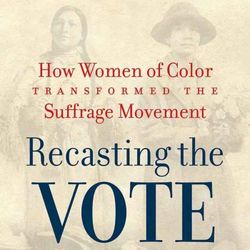
106. 106: Recasting the Vote
54:17||Ep. 106Think you know the story of women’s suffrage? Think again. In this episode of The Gilded Age and Progressive Era Podcast, Boyd sits down with co-host Cathleen D. Cahill to discuss her groundbreaking book Recasting the Vote: How Women of Color Transformed the Suffrage Movement (UNC Press, 2020). Cahill’s book challenges the traditional narrative of women’s suffrage by centring the Indigenous, African American, Latina, and Asian American women who organized, mobilized, and redefined the fight for political rights.Cahill introduces us to a cast of remarkable women—Zitkála-Šá, Mabel Ping-Hua Lee, Carrie Williams Clifford, and Adelina “Nina” Otero-Warren—who pushed the fight for the vote beyond white, middle-class reformers. Their activism linked suffrage to sovereignty, citizenship, immigration, and racial justice, recasting the movement as part of a much bigger struggle for equality.Along the way, we explore why the story doesn’t end in 1920 with the Nineteenth Amendment—and why it still matters for today’s fights over voting rights.Further Reading:Leila J. Rupp, Worlds of Women: The Making of an International Women’s Movement (1997)Martha S. Jones, Vanguard: How Black Women Broke Barriers, Won the Vote, and Insisted on Equality for All (2020)Michelle Duster, Ida B. the Queen: The Extraordinary Life and Legacy of Ida B. Wells (2021)Alison M. Parker, Unceasing Militant: The Life of Mary Church Terrell (2020)Jad Adams, Women and the Vote: A World History (2014)